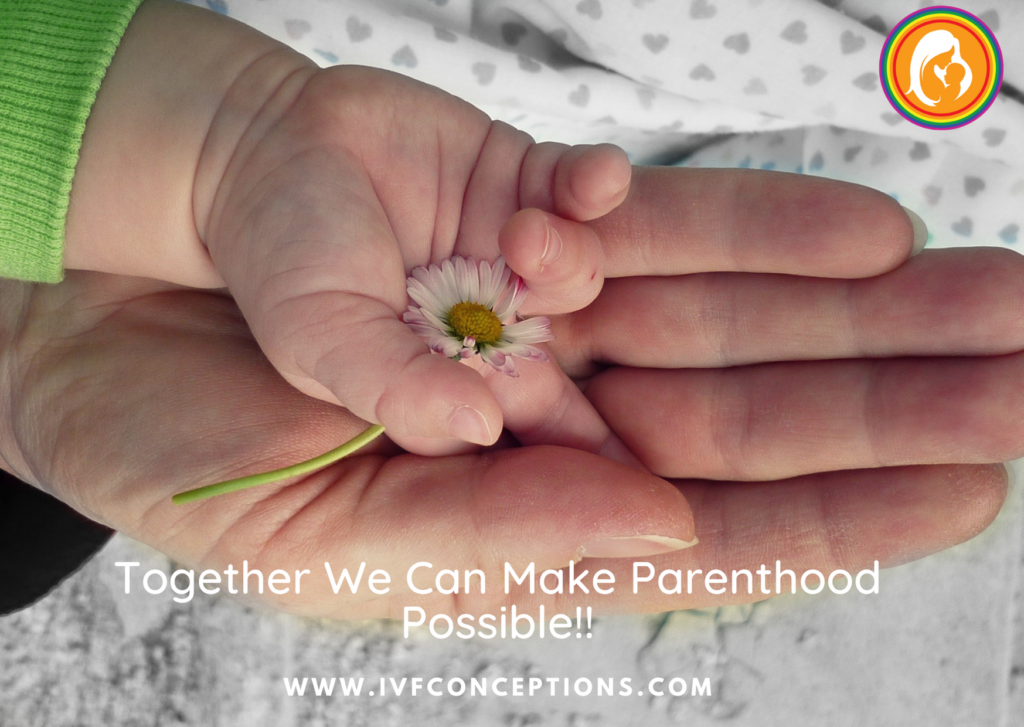Psychological Screening for Intended Parents in Surrogacy: Why It Matters and What to Expect

Surrogacy is a deeply emotional and life-changing journey for both intended parents and surrogate mothers. While much attention is given to the legal and medical aspects of surrogacy, the psychological well-being of intended parents is equally crucial. A psychological screening ensures that intended parents are mentally prepared for the challenges, emotions, and responsibilities that come with surrogacy.
In this blog, we will delve into the importance of psychological screening for intended parents in surrogacy, what the screening entails, and how it benefits all parties involved in the process.
By all means, gestational surrogacy is not an easy procedure for anyone. It is a financial, medically, legally, and physically exhaustive procedure. But the result of the surrogacy- holding your baby in your hands – will compensate for all the pains, hardships, and uncertainty that you will go through in surrogacy.
In a surrogacy journey, a surrogate needs to be screened properly – be it physical examination or psychological screening.
But do you wonder if psychological screening is required for the intended parents as well? Do they also have to go through physical screening? Then you are in the right place. To know more about this topic, read further and get all your answers.
Get in touch for a Free Surrogacy Consultancy:
📲 +91-8800481100 ( WhatsApp, Line, Viber)

What is Psychological Screening in Surrogacy?
Psychological screening refers to the evaluation process designed to assess the mental and emotional readiness of intended parents who are about to embark on a surrogacy journey. It is usually conducted by a licensed mental health professional, such as a psychologist or counselor, who has experience in third-party reproduction.
The goal of psychological screening is not to disqualify anyone from becoming parents but rather to ensure that they are prepared for the unique challenges and emotional complexities associated with surrogacy. It also helps identify potential areas where support might be needed during the journey.
 Why Psychological Screening is Essential for Intended Parents
Why Psychological Screening is Essential for Intended Parents
The surrogacy process can be emotionally demanding and filled with uncertainties. From the decision to use a surrogate to dealing with the relationship dynamics between the intended parents and the surrogate mother, the journey requires strong mental resilience. Here are some reasons why psychological screening is essential:
- Emotional Readiness: Becoming a parent through surrogacy is different from natural conception. Intended parents need to be emotionally ready to handle the highs and lows, from the medical process to the emotional attachment during pregnancy.
- Setting Realistic Expectations: Psychological screening helps intended parents set realistic expectations about the surrogacy journey, including potential risks, emotional fluctuations, and the surrogate’s role.
- Building Healthy Relationships with the Surrogate: A strong, respectful relationship with the surrogate mother is key to successful surrogacy. The screening helps intended parents understand the importance of communication, mutual respect, and emotional boundaries.
- Coping with Loss and Failure: Not all surrogacy journeys are smooth. The psychological screening process helps intended parents prepare for unexpected outcomes, such as failed embryo transfers or miscarriage, and provides strategies for coping.
- Parental Readiness: Screening ensures that intended parents are mentally prepared for parenthood, including the challenges of raising a child born through surrogacy.
What Does Psychological Screening Involve?
Psychological screening for intended parents is a multi-faceted process that looks at various aspects of mental and emotional health. It typically involves:
1. Clinical Interview
The foundation of psychological screening is an in-depth clinical interview with a licensed mental health professional. The therapist will ask questions to gauge emotional well-being, relationship dynamics, coping strategies, and motivation for pursuing surrogacy.
- Key Questions During the Interview:
- Why have you chosen surrogacy as a family-building option?
- How do you feel about someone else carrying your child?
- How have you coped with infertility or prior pregnancy losses (if applicable)?
- How do you plan to explain the surrogacy journey to your future child?
2. Psychological Testing
In some cases, intended parents may be asked to complete psychological tests or assessments. These tests evaluate personality traits, coping mechanisms, stress tolerance, and overall mental health. Commonly used assessments include the Minnesota Multiphasic Personality Inventory (MMPI) or other validated tests.
3. Assessment of Relationship Dynamics
For couples, the therapist will often assess the strength of the relationship. Surrogacy can put strain on even the most stable relationships, so it’s essential to ensure both partners are on the same page and emotionally supportive of each other throughout the process.
- Areas Assessed:
- Communication skills between partners
- Coping strategies for stress and uncertainty
- Emotional support systems
4. Discussion of Surrogacy Expectations
The mental health professional will facilitate a discussion on the expectations surrounding the surrogacy journey. This includes:
- How involved the intended parents wish to be during the pregnancy
- How they will maintain boundaries with the surrogate mother
- Their feelings about the surrogate’s role in the child’s life
- Financial and logistical concerns
5. Coping Strategies
The psychologist will explore the intended parents’ current coping strategies and recommend tools or resources to help manage stress, disappointment, or anxiety that may arise during the process.

Benefits of Psychological Screening for Intended Parents
Psychological screening is beneficial for both intended parents and surrogates, creating a foundation of trust and clear communication. Some key benefits include:
- Increased Emotional Resilience: Psychological screening equips intended parents with the emotional tools needed to handle the surrogacy process, including potential setbacks.
- Enhanced Communication: The screening encourages open and honest communication between intended parents, surrogate mothers, and medical teams, reducing misunderstandings.
- Stronger Relationship with the Surrogate: When both intended parents and the surrogate understand each other’s expectations and emotions, it fosters a healthier relationship throughout the pregnancy.
- Better Prepared for Parenthood: For first-time parents, the screening helps them mentally prepare for the challenges and joys of parenthood, specifically when the child is born through surrogacy.
Can you be rejected as an intended parent?
In a few cases, you can be rejected as being intended parents. IVF Clinics and surrogacy agencies, generally ensure the fact that you do not have any criminal background against you. Some will also do your background check. Various reasons for which you will be rejected by the surrogacy agency as an intended parent are –
- If you possess a history of criminal activities against the kids.
- If you don’t have the support of the spouse or the family.
- If you are not respectful towards the surrogate.
- If you have a very advanced age above 55 years.
- If you are unwilling to go for psychological assessments.
- If you are not completing the paperwork promptly.
So, in these cases, few of the surrogacy agencies may reject you as intended parents.

Common Concerns Addressed During Psychological Screening
Many intended parents may feel anxious about psychological screening, particularly if they are unfamiliar with the process. Here are some common concerns and how the screening addresses them:
|
Concern |
How Psychological Screening Helps |
|
Feeling judged or evaluated |
The screening is not about disqualifying intended parents but about ensuring readiness and providing emotional support. |
|
Worry about coping with disappointment |
Screening helps intended parents develop coping strategies for setbacks, including failed embryo transfers or miscarriages. |
|
Navigating the relationship with the surrogate |
Psychologists offer guidance on how to build and maintain a positive, respectful relationship with the surrogate. |
|
Uncertainty about parenthood |
The process helps first-time parents prepare emotionally for the responsibilities and challenges of raising a child. |
How to Prepare for Psychological Screening
Preparing for psychological screening is straightforward. Keep in mind that the process is meant to support and guide you through your surrogacy journey, not to create additional stress. Here are a few tips to get ready:
- Be Open and Honest: The more honest you are about your emotions, fears, and expectations, the more helpful the screening will be.
- Communicate with Your Partner: If you’re part of a couple, discuss your feelings and expectations about surrogacy beforehand. Being aligned can help ensure a smoother journey.
- Ask Questions: If you have concerns or uncertainties about the process, don’t hesitate to ask the psychologist for guidance or clarification.
Why would a surrogacy agency want intended parents to go for psychological screening?
Surrogacy mental health evaluations
The psychological test, in a short period, gives the agency a lot of details about you. The results of the test demonstrate your strengths and weaknesses, and what your patterns are.
It helps the organization decide how to better serve you in the process and also helps the agency find the right match for you. The key goal is to ensure you are prepared and well-informed on what to do. After all, family building with a third party can be daunting, and for intended parents, it poses specific challenges and stressors.
More resources on this topic:
How much does actual surrogacy cost?
Surrogate mother requirements that parents should know

How is the psychological screening performed?
Psychological screening for intended parents can be performed via a questionnaire or a visit to the doctor
- They will ask your family history, and then determine your commitment and involvement in the journey of surrogacy. This will begin as the initiation of the surrogacy plan in progress.
- The surrogacy specialist will be corresponding with you at this point through a phone call to learn more about your plans and goals. They may require that you fill out a questionnaire. This questionnaire will have the following questions- Whether traditional surrogacy or gestational surrogacy? Method budget projections. Your previous experience with family building procedures. The amount of interaction they would like to have with the surrogate and after the surrogacy procedure. Their intentions explain the surrogacy procedure to the child and much more.
- The majority of the surrogacy agencies will have a medical staff trained in mental health that will help you know the emotional aspects of surrogacy and will check whether you will be able to pass the emotional obstacles of the surrogacy journey.
That being said, you might now understand the importance of the psychological screening of the intended parents.
In most cases, the surrogacy agency might not go for formal psychological screening but will do a psychological check with you to ensure whether you will be able to handle the emotional obstacles in your surrogacy journey. If your surrogacy agency finds any problem in the psychological evaluations, they may ask you to get a formal clearance letter from your psychiatrist or the therapist so that they can continue with the surrogacy journey.
Can surrogates have their criteria to make a match with the intended parents?
Every surrogate has to go through a psychological screening procedure. During this procedure, the agency will ask her preference as to which kind of intended parents she would like to match with.
Some would prefer to work with married couples, some would like to work with heterosexual couples, some might want to work with foreign nations so on and so forth. A few things that surrogates might want to consider are –
- How many embryos are transferred?
- Views of the intended parents on selective reduction and termination.
- Location of the intended parents
- How much communication is required by the intended parents?

Conclusion for intended parent psychological evaluation
There is an immense significance of psychological screening for intended parents in surrogacy. It serves as a crucial step in ensuring the emotional well-being of all parties involved and contributes to the overall success of the surrogacy journey.
By meeting the requirements set by fertility clinics, engaging in open and honest discussions, and preparing for the screening process, intended parents can approach surrogacy with confidence, knowing that they are well-prepared for the challenges and joys that lie ahead.
Having a baby through the surrogacy process is not easy for both surrogate mothers and the intended parents. In countries like the USA, lots of attention is paid to making sure both parties are fully aware of the surrogacy process and what risks and opportunities it gives them. Life-changing decisions like having a baby will affect not only would-be parents and surrogates but their families too.
An emotionally and physically sound person can cope with the uncertainty and magnitude of involvement in the process like surrogacy. Therefore, it is a tedious journey but the results are worth it.
If you have further questions about the early steps of becoming an intended parent or wish to explore surrogacy as an option, please don’t hesitate to contact us.
Our dedicated team at IVF Conceptions is here to guide you through the process, provide support, and address any inquiries you may have as you embark on your surrogacy journey.
If you’d like to learn more about IVF, Egg Donation, or surrogacy services globally, check out the rest of our website at IVF Conceptions. We offer legally secure and affordable surrogacy consulting services for FREE.
Get in touch for a Free Surrogacy Consultancy:
📲 +91-8800481100 ( WhatsApp, Line, Viber)

FAQs About Psychological Screening for Intended Parents for Surrogacy
What is psychological screening for intended parents in surrogacy?
Psychological screening for intended parents in surrogacy refers to the evaluation and assessment process conducted to assess their mental and emotional well-being, readiness, and suitability to embark on the surrogacy journey. It involves engaging with mental health professionals who specialize in surrogacy-related psychological evaluations.
Why is psychological screening necessary for intended parents in surrogacy?
Psychological screening is necessary for intended parents in surrogacy for several reasons.
Firstly, it helps assess the mental and emotional preparedness of the intended parents to navigate the complexities and emotional challenges that may arise throughout the surrogacy process. It ensures that they have realistic expectations and are mentally stable to handle the ups and downs associated with surrogacy.
Secondly, the screening helps identify any underlying psychological issues or concerns that may impact the well-being of the child or the relationship between the intended parents and the surrogate. It aims to promote the overall welfare and safety of everyone involved in the surrogacy arrangement.
Lastly, psychological screening is often required by fertility clinics and may even be a legal requirement in certain states to ensure the suitability of intended parents for surrogacy.
How does psychological screening benefit intended parents and surrogates?
Psychological screening benefits both intended parents and surrogates in several ways.
For intended parents, it provides an opportunity to explore and address any emotional concerns, anxieties, or unresolved issues related to infertility, parenthood, or the surrogacy process.
It equips them with the necessary coping strategies, communication skills, and emotional support to navigate the journey successfully.
It also ensures that intended parents are prepared to provide a supportive and nurturing environment for the child born through surrogacy.
Who conducts the psychological screening process for intended parents?
The psychological screening process for intended parents is typically conducted by licensed mental health professionals who specialize in reproductive psychology or have experience in surrogacy-related evaluations.
Fertility clinics often have mental health professionals on staff who are well-versed in the psychological aspects of surrogacy.
These professionals may include psychologists, psychiatrists, social workers, or counselors with expertise in assessing the mental and emotional well-being of individuals and couples seeking surrogacy.
What are the key components of a psychological screening for intended parents?
The key components of a psychological screening are:
a) Initial interviews: These interviews allow the mental health professional to gather information about the intended parents’ background, motivation for surrogacy, emotional history, and expectations.
b) Psychological assessments: These may involve standardized tests or questionnaires that assess mental health, personality traits, coping skills, and emotional stability.
c) Evaluation of relationships: The mental health professional may explore the dynamics of the intended parents’ relationship, their communication skills, and their ability to navigate potential challenges as a team.
d) Review of medical and infertility history: The professional may inquire about the intended parents’ medical history, previous infertility treatments, and any psychological impact resulting from the infertility journey.
e) Discussion of parenting plans: The mental health professional may discuss the intended parents’ parenting values, plans for disclosure of surrogacy to the child, and their ability to provide a loving and supportive environment.
How long does the psychological screening process typically take?
Typically, the process can range from a few weeks to a couple of months. It may involve initial interviews, completion of questionnaires or assessments, and follow-up sessions to discuss the results and address any concerns that may arise.
The goal is to ensure a thorough evaluation of the intended parents’ mental and emotional well-being while maintaining an efficient process to facilitate timely matching with a surrogate.
Can intended parents be disqualified based on the results of psychological screening?
Yes, intended parents can be disqualified based on the results of psychological screening if significant mental health concerns or issues are identified that could potentially jeopardize the well-being of the child or the surrogacy process.
The purpose of the screening is to ensure the safety and emotional stability of all parties involved. If the mental health professional determines that the intended parents are not psychologically prepared or suitable for surrogacy, the fertility clinic or surrogacy agency may decide to disqualify them from proceeding further.
Are psychological screenings mandatory for intended parents in all surrogacy arrangements?
Psychological screenings are not mandatory in all surrogacy arrangements, but they are highly recommended and often required by reputable fertility clinics and surrogacy agencies. The specific requirements may vary depending on the location, jurisdictional regulations, and the policies of the involved parties
What types of psychological assessments are involved in the screening process?
The types of psychological assessments involved in the screening process may vary depending on the preferences and. Common assessments may include:
a) Mental health questionnaires: These questionnaires assess general mental health, well-being, and the presence of any psychological disorders.
b) Personality assessments: These assessments help evaluate the intended parents’ personality traits, coping mechanisms, and compatibility with the challenges associated with surrogacy.
c) Interviews and discussions: In-depth interviews and discussions with mental health professionals allow for a comprehensive exploration of the intended parents’ emotional history, motivations, expectations, and readiness for surrogacy.
d) Relationship assessments: The mental health professional may assess the dynamics of the intended parents’ relationship, their communication skills, and their ability to navigate the surrogacy journey together.
How does psychological screening ensure the well-being of the child born through surrogacy?
Psychological screening of intended parents plays a crucial role in ensuring the well-being of the child born through surrogacy.
By assessing the mental and emotional stability of the intended parents, the screening helps identify any potential issues that could affect their ability to provide a safe, supportive, and nurturing environment for the child.

 Why Psychological Screening is Essential for Intended Parents
Why Psychological Screening is Essential for Intended Parents